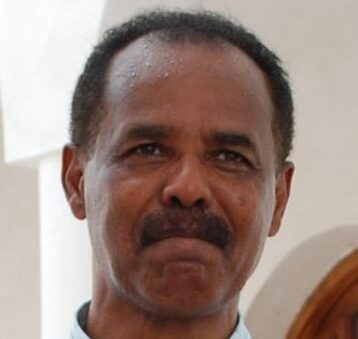
Isaias Afwerki is the first and current President of Eritrea, a country located in the Horn of Africa. He was born on February 2, 1946, in Asmara, Eritrea, which was then part of Ethiopia.
Afwerki received his secondary education in Asmara and later attended the University of Addis Ababa in Ethiopia, where he studied engineering. He became involved in the Eritrean Liberation Front (ELF) in the 1960s and later joined the Eritrean People’s Liberation Front (EPLF), a Marxist-Leninist group that sought to gain independence for Eritrea from Ethiopia.
Afwerki was one of the leaders of the EPLF during the Eritrean War of Independence, which lasted from 1961 to 1991. In 1993, Eritrea gained its independence from Ethiopia, and Afwerki became the first President of the newly formed country.
Since then, Afwerki has been the de facto ruler of Eritrea, having overseen a one-party state with limited civil liberties and a poor human rights record. He has been accused of suppressing opposition, controlling the media, and imprisoning journalists and dissidents.
As for his wealth, there is little information available on Afwerki’s personal finances. However, it is widely believed that he and his close associates have amassed significant wealth through their control of the Eritrean government and its resources.
Despite this, Eritrea remains one of the poorest countries in the world, with a high unemployment rate and widespread poverty.
In recent years, Afwerki has sought to improve Eritrea’s relations with its neighbors, including Ethiopia and Sudan. However, his government’s human rights record and authoritarian rule continue to be a source of concern for many in the international community.
Timeline
1946: Isaias Afwerki is born on February 2 in Asmara, Eritrea, then part of Ethiopia.
1960s: Afwerki becomes involved with the Eritrean Liberation Front (ELF).
1970s: Afwerki joins the Eritrean People’s Liberation Front (EPLF), a Marxist-Leninist group that seeks to gain independence for Eritrea.
1980s: Afwerki becomes one of the leaders of the EPLF during the Eritrean War of Independence.
1991: The EPLF succeeds in driving Ethiopian forces out of Eritrea.
1993: Eritrea gains its independence from Ethiopia and Afwerki becomes the first President of the newly formed country.
1998-2000: Eritrea is involved in a border war with Ethiopia that results in the loss of thousands of lives.
2001: Afwerki establishes a one-party state and cracks down on opposition parties and the press.
2018: Afwerki makes peace with Ethiopia after years of conflict and hostility between the two countries.
2020: Afwerki announces that Eritrea will hold its first elections in 25 years, but it remains to be seen if they will be free and fair.
2021: Eritrea’s government is accused of committing war crimes and crimes against humanity in the Tigray region of Ethiopia. Afwerki denies the accusations.
5 Interesting Facts:
- Isaias Afwerki was the commander of the Eritrean People’s Liberation Front during the Eritrean War of Independence.
- Afwerki was once known for his socialist views, but he has since become a staunch authoritarian and has been accused of suppressing opposition.
- He is a fan of jazz music and has been known to attend jazz festivals in Asmara.
- Afwerki has been in power since 1993 and is one of the longest-serving leaders in Africa.
- He is notoriously reclusive and rarely gives interviews to the press.
5 Quotes:
- “Eritrea is a young nation, but we have a long and proud history of struggle and resistance.”
- “We will not be swayed by the opinions of others. Eritrea will do what is best for Eritrea.”
- “We are not seeking to model ourselves after any other country or ideology. Eritrea will chart its own course.”
- “The West has a tendency to impose its values on other nations. We reject this form of cultural imperialism.”
- “The people of Eritrea are our greatest asset. We will work to ensure their prosperity and well-being.”









